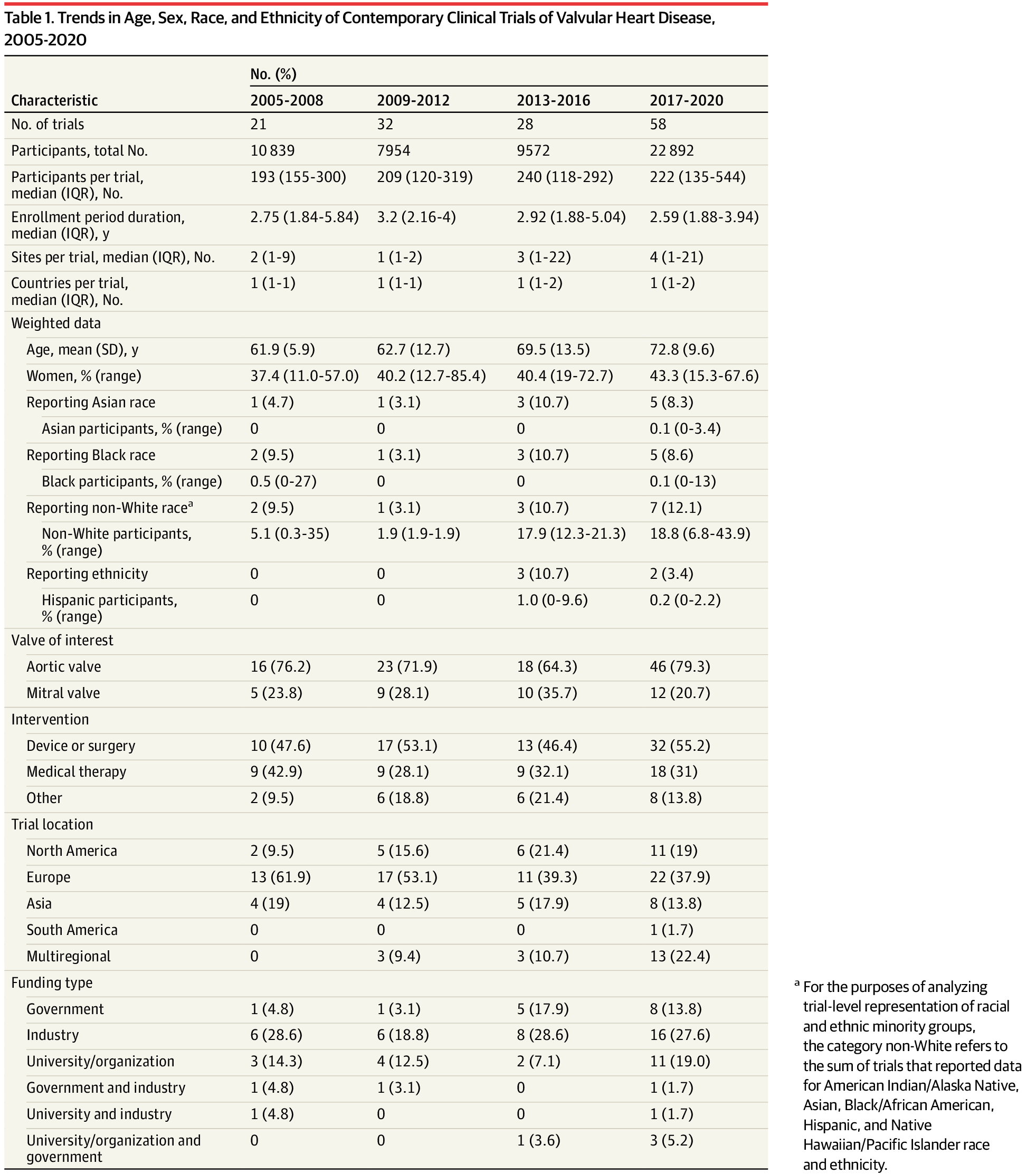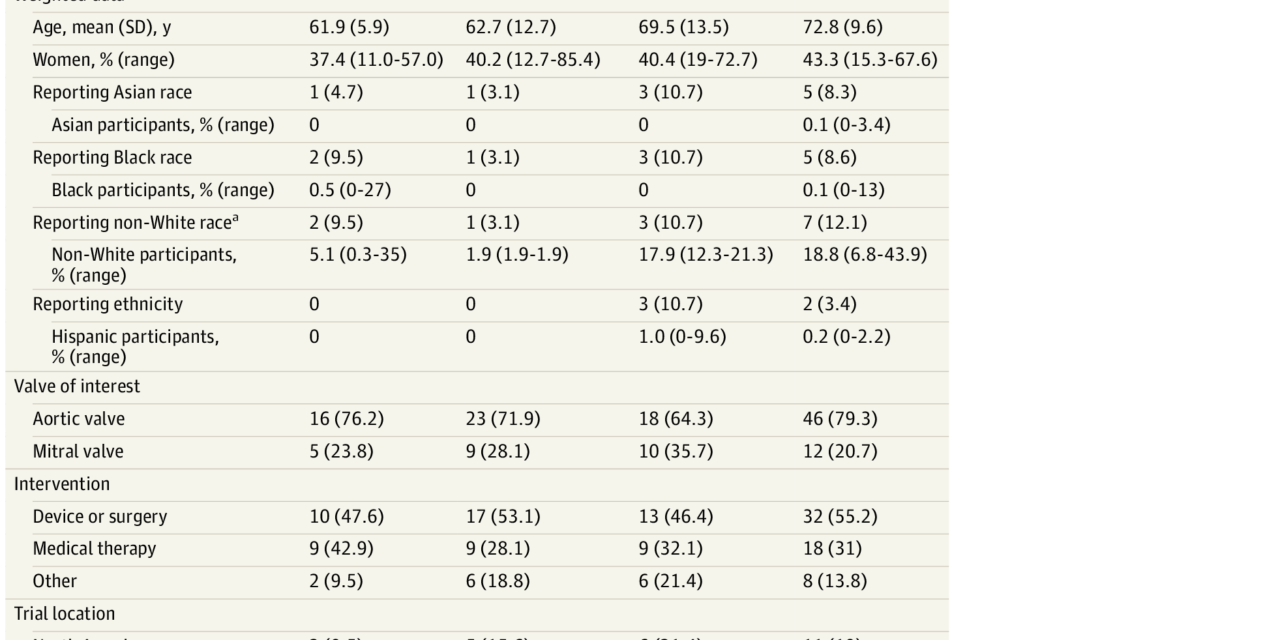
Key Points
Question
How representative are contemporary valvular heart disease trials with respect to age, sex, race, and ethnicity?
Findings
In this systematic review of valvular heart disease clinical trials, the weighted mean (SD) age of trial participants was 68.4 (11.4) years, women comprised 41% of the overall trial population, and there were few trials that reported data on race and ethnicity. There were no significant increases in the representation of older patients, women, and racial and ethnic minority groups over time.
Meaning
Women and racial and ethnic minority individuals remain underrepresented in North American valvular heart disease clinical trials with few trials reporting data on the race and ethnicity of trial participants.
Importance
Inadequate representation of older patients, women, and racial minority individuals in cardiovascular clinical trials limits both the generalizability of trial findings and inclusivity in access to novel therapies and therapeutic strategies.
Objective
To report on temporal trends in the representation of older patients, women, and racial and ethnic minority individuals in clinical trials studying treatments for valvular heart disease.
Evidence Review
All published clinical trials enrolling more than 100 adults with any valvular heart disease published between 2005 and 2020 were included after searches with PubMed and ClinicalTrials.gov. Data on age, sex, race, and ethnicity reported in the included studies were collected. Trials were assigned to 4 time periods based on the publication date, and temporal trends were analyzed in the representation of older patients, women, and racial and ethnic minority individuals.
Findings
A total of 139 clinical trials with 51 527 participants were identified. Of these trials, 103 (74%) investigated aortic valve disease and the remainder mitral valve disease. Overall, 63 trials (45.3%) enrolled patients only in Europe, 24 (17.3%) only in North America, and 19 (13.7%) in multiple geographical regions. The weighted mean (SD) age of enrolled patients was 68.4 (11.4) years, increasing nonsignificantly from 61.9 (5.9) years in 2005-2008 to 72.8 (9.6) years in 2017-2020 (P = .09 for trend). The overall proportion of women enrolled in valvular heart disease trials was 41.1%, with no significant changes over time. Data on race and ethnicity of trial participants were reported in 13 trials (9.4%), in which trial-level representation of American Indian/Alaska Native, Asian, Black/African American, Hispanic, and Native Hawaiian/Pacific Islander patients ranged from 0.27% to 43.9%. There were no significant temporal trends noted in the enrollment of racial and ethnic minority populations. The representation of women in clinical trials was positively associated with enrollment rates of older patients and underrepresented racial and ethnic groups.
Conclusions and Relevance
This review found that over the past 2 decades, women and racial and ethnic minority individuals have remained underrepresented in North American valvular heart disease clinical trials. Further work is needed to improve the reporting of race and ethnicity data and address barriers to trial enrollment for older patients, women, and racial and ethnic minority individuals.




